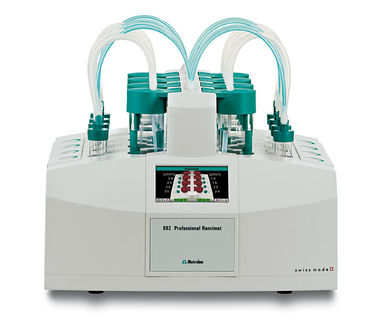To use all functions of this page, please activate cookies in your browser.
my.chemeurope.com
With an accout for my.chemeurope.com you can always see everything at a glance – and you can configure your own website and individual newsletter.
- My watch list
- My saved searches
- My saved topics
- My newsletter
RadiobiologyRadiobiology (or radiation biology) is the interdisciplinary field of science that studies the biological effects of ionizing and non-ionizing radiation of the whole electromagnetic spectrum, including radioactivity (alpha, beta and gamma), x-rays, ultraviolet radiation, visible light, microwaves, radio wave, low-frequency radiation (such as used in alternate electric transmission, ultrasound thermal radiation (heat), and related modalities. Product highlight
Areas of interestThe interactions between electromagnetic fields (EMF) and organisms can be studied at several levels:
See also
NotesReferences and further reading
|
|
| This article is licensed under the GNU Free Documentation License. It uses material from the Wikipedia article "Radiobiology". A list of authors is available in Wikipedia. |







